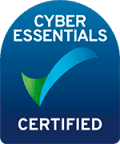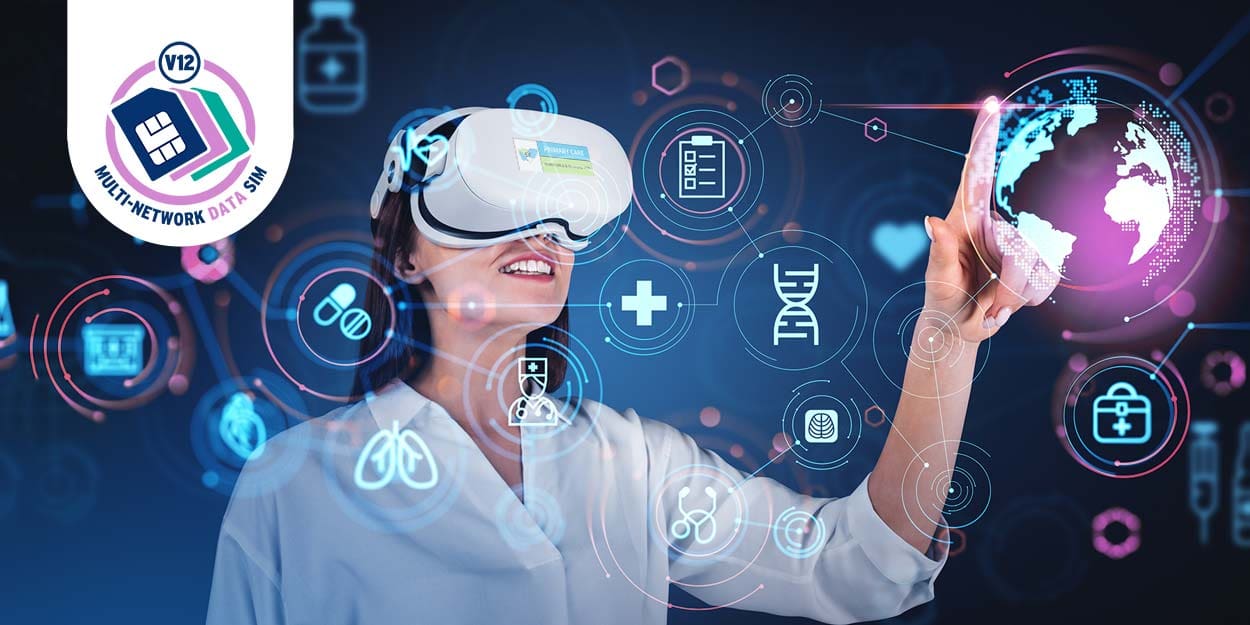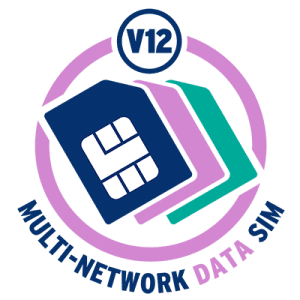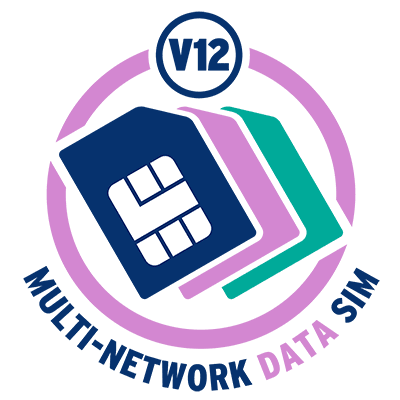V12’s Multi-Network Data SIMs provide reliable connectivity for VR headsets, ensuring uninterrupted, high-quality training experiences
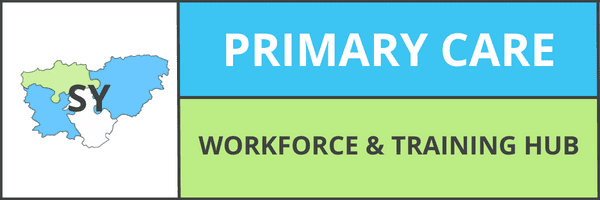
South Yorkshire Primary Care Workforce & Training Hub (hosted by Primary Care Doncaster Ltd) is a training hub with nearly two decades of experience, recently recognised by the NHS, that specialises in supporting the transition from qualification to employment in primary care. The hub offers an induction program for practical experience—before practitioners begin their roles—and continued supportive transition with Preceptorship and CPD for those roles new and established. It also boasts an award-winning nurse vocational training scheme, trainee nurse associates, a rotational paramedic scheme and non-clinical training programmes for reception, admin and aspiring practice managers and leaders of all careers.
The Challenge
The hub team have always worked remotely. The practical impact from COVID 19, however, meant that training delivery methods had to change, whilst the increased demand for trained clinical staff dramatically impacted the practicality of delivering hands-on training online from home and led to increased costs due to the use of hotel rooms and conference suites. The hub and the primary care workforce faced constraints such as reduced capacity to train others, limited time allocated to supervision, fewer qualified assessors, and financial challenges in funding placements and attracting nursing students to primary care careers.

Liz Leggott (Project Manager, South Yorkshire Primary Care Workforce & Training Hub) says:
“I had to find a way to do this differently. I needed to find a way to spend the same amount of money, but better.”
With the publication of the NHS Long Term Workforce Plan (NHS LTWP) calling for a targeted number of additional trainees and placements in the system, there is call for radical thinking and innovation to enable the plan to be met.
Solution Exploration
Due to the adoption of hybrid working, consequent estates rationalisation in NHS buildings and increased pressure on an already-squeezed primary care estate, the need to be able to deliver training from anywhere, at any time, using advanced technology was clear, but questions about the necessary equipment arose. The hub sought a practical tech solution that could deliver training from any location without communication failures, especially given that reliable Wi-Fi was not always available.




Liz Leggott comments:
“Upon researching, I discovered V12 Telecom and a prompt response from their managing director, Charles Rickett, provided clarity on how V12 Multi-Network Data SIM cards could be utilised to provide connectivity, whatever the location”.
V12 offered a trial SIM card to test its effectiveness in the training hub’s context; the technology proved successful from the outset, leading to a full implementation within two weeks.
How the Tech is Used
The training hub integrated VR headsets and software into their training regime and they collaborated with Re:course AI and BodySwaps to simulate patient interactions for GP practices. Additionally, in partnership with UI3D and accessible via Matterport, they created a 360-degree digital twin of a GP practice, which includes videos and key information about primary care operations. All of this is managed and monitored by SyncVR, a VR management platform that is working with the training hub to promote these tools to other potential users. This technology is used for various training purposes, including reception and admin training, dealing with patient interactions, and providing international GPs with an induction to UK primary care.
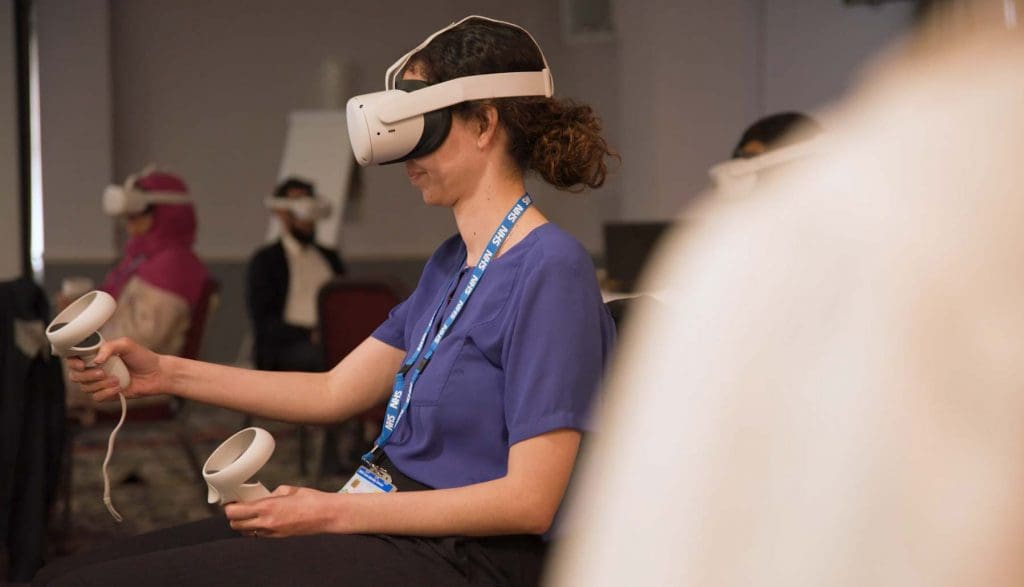

Images courtesy of BodySwaps
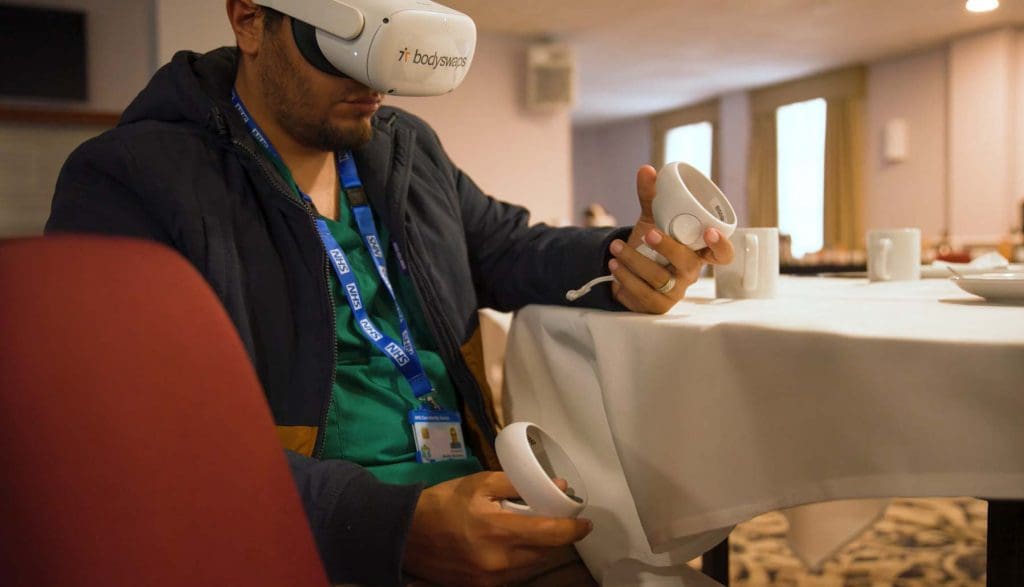

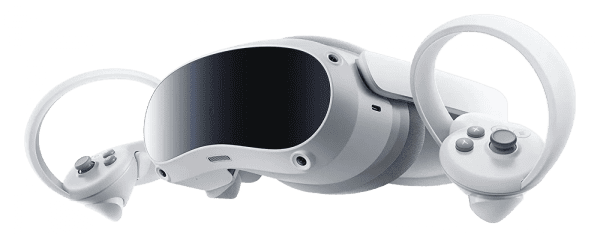

Pico 4 VR headset
The hub is now planning a pilot with Sheffield Hallam University and ExR to try and recreate a fit-for-purpose nurse placement outside of the general practice setting; if this succeeds, it means that the NHS LTWP targets could be better achieved.
The Future
The Training Hub’s investment in technology-driven training is recognised by NHS England, which sees the need for more tech partnerships. The hub is in the process of creating an infographic and a detailed document to outline their blueprint for innovation, which could potentially be replicated across the UK. This case study demonstrates how V12 Telecom’s Multi-Network Data SIM cards can be pivotal in providing reliable connectivity for VR headsets, ensuring uninterrupted, high-quality training experiences in various settings. This technology enables the training hub to deliver consistent and effective training without being bound by location, or reliant on unstable Wi-Fi connections.




Liz Leggott comments:
“Technology-led training really is the future and this is fully recognised within the NHS. Projects of this kind are vital to the development of health provision and access to reliable connectivity is essential to this roll-out.”


Charles Rickett (Managing Director, V12 Telecom) adds:
“We are delighted to work with Liz and her colleagues. The ability for them to access whatever networks are available, in any location, will be transformative for this technology.”
For more on Multi-Network Data SIMs and how they might solve your connectivity challenges, see V12’s overview here

